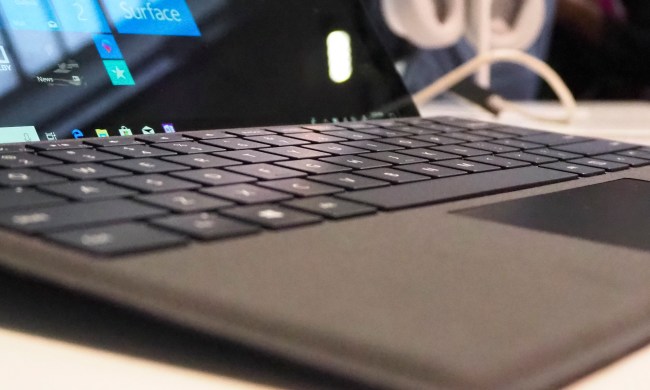
An early version of Windows 10 Cloud is now available as an ISO file via Twitter user @adguard. Those wanting to see what the fuss is all about should not install this platform on a machine, but create a bootable USB drive or run the ISO file through a virtual machine. The downloadable file resides on a cloud server located in Russia.
The idea behind Windows 10 Cloud is to provide a lightweight, optimized version of Windows 10 for notebooks to compete directly with Google’s Chrome OS platform installed on Chromebooks. Following Google’s lead, Windows 10 Cloud will not allow users to install traditional desktop software, but force customers to rely solely on the Windows Store. Chromebooks are similar in nature, locking users to the Chrome Web Store.
That said, customers who try to install traditional Windows software will receive the following message:
This app you’re trying to run isn’t designed for this version of Windows. This version of Windows was made to help protect you and your device by exclusively running Windows Store apps.
What’s the difference between regular desktop software and Universal Windows Platform (UWP) apps available through the Windows Store? Traditional desktop software typically contains multiple components that may install in multiple locations on a PC, and can be freely downloaded and installed from any source. UWP apps are a single package installed in one location, and can only be obtained through the Windows Store, which is bundled into Windows 10 and controlled by Microsoft.
UWP apps are supposedly more secure than desktop software. That’s because apps sold through the Windows Store are “sandboxed,” meaning Windows 10 controls the environment and permissions apps need to function. If by chance an app is hacked, it will be unable to exit its sandbox and infect the entire operating system. Regular desktop software, however, can cause complete chaos.
Windows 10 Cloud does offer a way to use older desktop software, but the developer needs to take some action to make it possible. Microsoft offers a Desktop App Converter, which takes a desktop program and bundles all components into a sandboxed package that can be placed on the Windows Store. It’s still the same program, just in an app form — and upgraded to take advantage of special Windows 10 features only offered through the Universal Windows Platform model.
There are reports that desktop programs converted to Windows 10 apps and distributed through the Windows Store still can’t run on Windows 10 Cloud due to their Win32-based nature. But given that this is an early build of Microsoft’s “lite” platform, that will likely change in the near future. Windows 10 Cloud isn’t expected to launch until the second half of this year, at the earliest.


